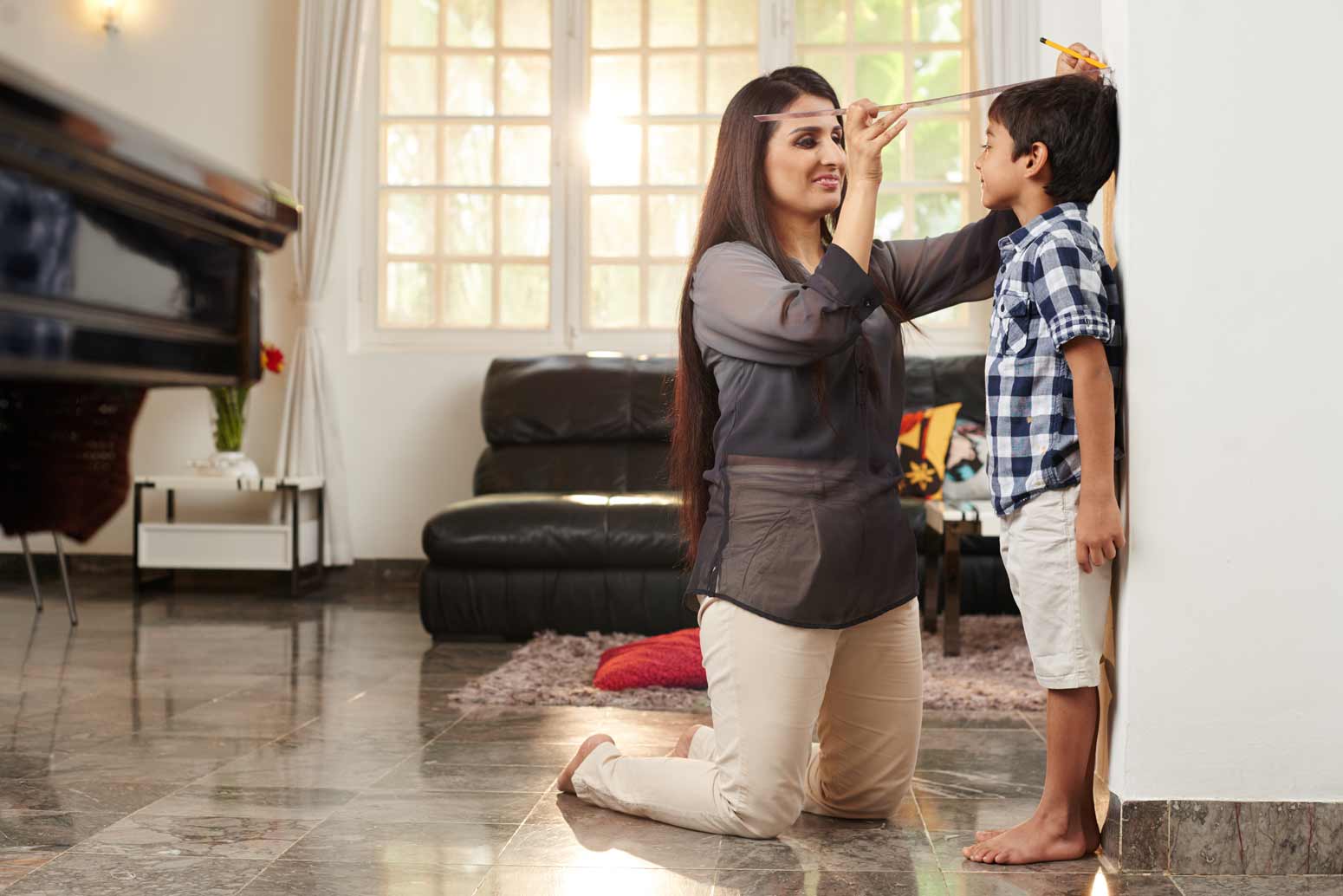No matter where you are in your career or how long you’ve been in the business world, interviewing for a new job is intimidating. Just the word alone is enough to strike anxiety right into the hearts of job seekers. And the actual act of interviewing, forget about it. It is a palm-sweating, heart palpitation-inducing nightmare for most of us. And that’s even when it goes well. Everyone needs job interview tips to keep that heart rate down.
But here’s the deal: interviews are a part of life. You won’t land the job of your dreams without going through an interview process of some type. (Unless your life is like a romantic comedy where dream jobs fall into your lap. In which case, I’m jealous, and you can stop reading now.) So you can’t avoid them. But how do you ace them?
After working as a recruiter for five years and doing countless interviews of all kinds, I know a thing or two about an interviewer’s mind. While it might not seem like it at times, they’re typically not intent on torturing you with questions for a few hours to find your deepest, darkest flaw so they can send you a rejection email a few weeks later. No, most interviewers are honestly just trying their best to objectively determine if you are a good fit for the role, the company, and the culture.
You won’t land the job of your dreams without going through an interview process of some type. So you can’t avoid them, but how do you ace them?
For the most part, it’s not rocket science, and the interviewer isn’t your enemy. If you can remember this when you’re sitting across the desk from them, you’re bound to relax and do your best. And if it’s the right fit for you, it will work out.
But just in case you need some extra help, here are 6 job interview tips to help you ace the interview and get the offer:
1. Do your research.
Research is the cardinal rule of interviewing, and all other interviewing tips and tricks fall by the wayside if you don’t follow it. Candidates need to know about the job for which they are applying. Let me say that again: candidates need to know the job for which they are applying. Inside and out, to the best of their ability. They need to understand the company, what they do, who they do it for, and, if possible, its mission statement. Nothing is more damaging to a candidate than to be ignorant of what the actual role entails or what the company does. Ignorance of these facts shows a lack of initiative, drive, and motivation for the job. Let’s face it: if you really want something, you take the time to learn all about it. A job is no exception. It will take some time, but do your research. Websites like glassdoor.com and indeed.com have reviews that are easy to access and view. Ask your initial point of contact (either a recruiter, HR, or a staffing agency) for as much information as you can. Request a prep call the day before your interview. Remember that it’s his job to present well-educated candidates to the interviewers so he should be glad to give you as much information as he possibly can.
2. Dress the part.
This should go without saying, but you’d be surprised how often qualified candidates are discounted for their appearance on interview day. And I will tell you as an interviewer that this has nothing to do with attractiveness and everything to do with professionalism. Interviews aren’t beauty contests, but they are a place where you want to bring your A-game on every level, your outfit included. This doesn’t always mean suiting up and dressing business professional and boring. But it does mean cleaning up and looking like you want the job. For interviewers, first impressions count, and they are always visual. So dress like you want the job. Unless you’re in the most creative of industries, wear a suit, or at the very least a blazer (with those temp stitches in the back snipped, please) over a dress or slacks. Jeans are never ok. Go easy on the makeup. Keep your hair and nails tidy. Don’t let anything about your outfit or appearance detract from your amazing resume and credentials. (More on dressing for work here.)
Most interviewers are honestly just trying their very best to objectively determine if you are a good fit for the role, the company, and the culture.
3. When in Rome…
For most roles, if you’ve made it to a final round interview, you will interview with more than one person, oftentimes executives and directors. Meeting more than one person means having more than one chance to make a good impression. This is excellent news—I’ve been in enough candidate reviews to know that one great impression can cancel out another mediocre (or even bad) one. But the bad news about this is that multiple interviewers mean multiple personalities, preferences, and interview styles, which can be a puzzle to the candidate.
Let’s face it: you will probably click with some better than others and find those interviews easy, almost like having a conversation with a friend. This is a very good thing. But what about those times when you don’t click? Or you can’t quite figure out what the interviewer is looking for? First of all, relax. Take a deep breath. Pause. Observe your interviewer; intently read their body language. And then mimic it! Yes, you read that right. Read your interviewer and mimic them. Chances are, if your interviewer is the strong, silent type with few spare words or comments, they will appreciate that in return. On the flip side, if you’re talking to a high-energy, enthusiastic interviewer, they will appreciate the energy returned to them in kind. This doesn’t mean you have to step outside of your comfort zone and be someone that you’re not; it means that you tailor your presence and response to match the energy of the person with whom you’re speaking. This shows intuition, emotional intelligence, and at the very least social awareness. When in Rome, act like a Roman.
4. Questions, questions, and more questions.
It’s sometimes hard to remember this, especially when you are nervous and trying to make a good impression, but you are interviewing for the job as well. What seems great on paper and in a recruiter phone pitch can be the perfect fit. But it can also have some hidden downfalls and ultimately just not be the right fit for you. You may never know this if you don’t ask the right questions. What are the right questions, though? Well, this depends on the role, your interviewer, and what you want to find out. Does it make sense to ask the CEO what his favorite part of the day is? Not really; unless you’re interviewing as his replacement. Make your questions applicable to your needs. Ask your potential boss what top performers do in their first 30 days to set them apart from the rest. Ask the CEO about her five-year plan for the company. Do your research into the background of your interviewers and ask questions about their career as a whole—why they chose to work there.
Good questions serve a secondary purpose that works to your advantage as well. It sets you apart as a candidate who has done their research, understands the backgrounds of the interviewers, and isn’t afraid to ask the hard questions.
Yes, you read that right. Read your interviewer and mimic them.
5. Follow-up.
This may seem old-fashioned. It may seem outdated. But I promise it’s not. Follow up with each interviewer. A handwritten note is ideal, but an email works wonders as well. It all comes down to initiative. If you walk away and want the job (and badly), stay relevant. Stay in front of your interviewers and show appreciation for their time and insight. I have worked with interviewers who will not make final decisions until they receive (or don’t receive) follow-up. Well-thought-out grammatically correct words can set you apart or derail you as a candidate. Be old-fashioned. Stand out. Follow up. (More on writing that email here.)
6. Be yourself.
Above all else, be yourself. You want to ensure that the role fits who you are—your personality, goals, and values. A rejection when presenting the best version of yourself does not mean you are a bad candidate. It simply means it wasn’t the right fit. And more times than not, that means you would ultimately not have been happy and fulfilled there in the long run anyway. So relax! Smile. Every opportunity is, at the very least, a chance to learn. So, clear your mind and do your best. It will work out if it’s the right job for you at the right time, and you can trust that fact.
Don’t miss these related episodes of This Grit and Grace Life:
To the Working Woman: A How-To Guide for the Workplace – 023
How to Be and Deal With an Introvert or Extrovert – 029
And watch this quick video for a few more tips!
—
You’ll also like Is Your Social Media Promoting You to Potential Employers?, 20 Things You Should Avoid Saying in a Job Interview, 6 Things You Should Do to Protect and Advance Your Career, The 6 Qualities That Make a Female Leader Strong, and 10 Ways to Be a Young, Respectful Professional.
#gritandgracelife













